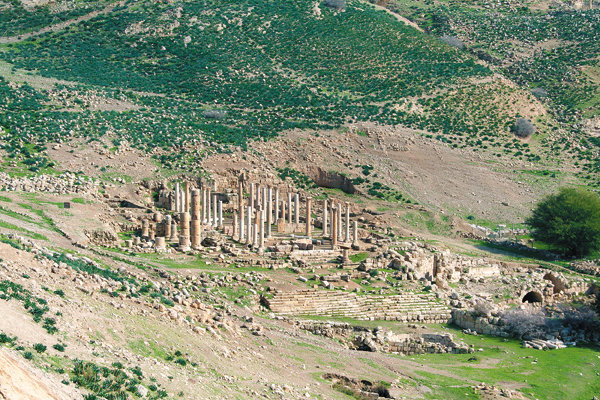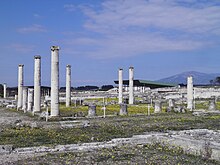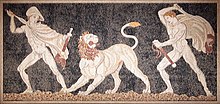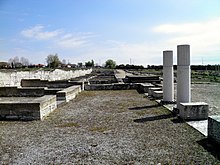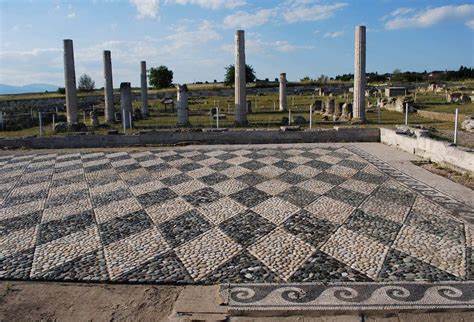Pella
Pella ( Arabic: فحل) was an ancient city in what is now northwest Jordan, and contains ruins from the Neolithic, Chalcolithic, Bronze Age, Iron Age, Canaanite, Hellenistic and Islamic periods. It is located near a rich water source within the eastern foothills of the Jordan Valley, close to the modern village of Ṭabaqat Faḥl (Arabic: طبقة فحل) some 27 km (17 mi) south of the Sea of Galilee (Lake Tiberias). The site is situated 130 km (81 mi) north of Amman: a drive of about two hours (due to the difficult terrain), and an hour southwest by car from Irbid, in the north of the country. Pella's ruins – predominantly temples, churches, and housing – have been partially excavated by teams of archaeologists; they attract thousands of tourists annually but especially in spring, during which time the area is awash with spring flowers. Pella is the name of Alexander the Great's birthplace in Macedonia. It is not known (as of 2006) who founded the Hellenistic town of Pella in Transjordan, which makes it hard to assess who exactly gave it its Greek name and precisely why.[2] Stephanos (fl. 6th century CE), a quite late source, seems to indicate that it was founded by Alexander himself,and Ptolemy III Euergetes is another possible founder. The Princeton Encyclopedia of Classical Sites write that it was founded by veterans of Alexander's army, and named it after the Pella in Greece which was the birthplace of Alexander.[6] Getzel M. Cohen sees it as plausible that the name Pella was chosen either due to its similarity with the older Semitic name, or due to a common characteristic of both the Macedonian and Transjordan sites: their richness in springs. For the Greek meaning of the name, see the Etymology paragraph in the article on the original Pella. The town is said to have been called Pihilum.
